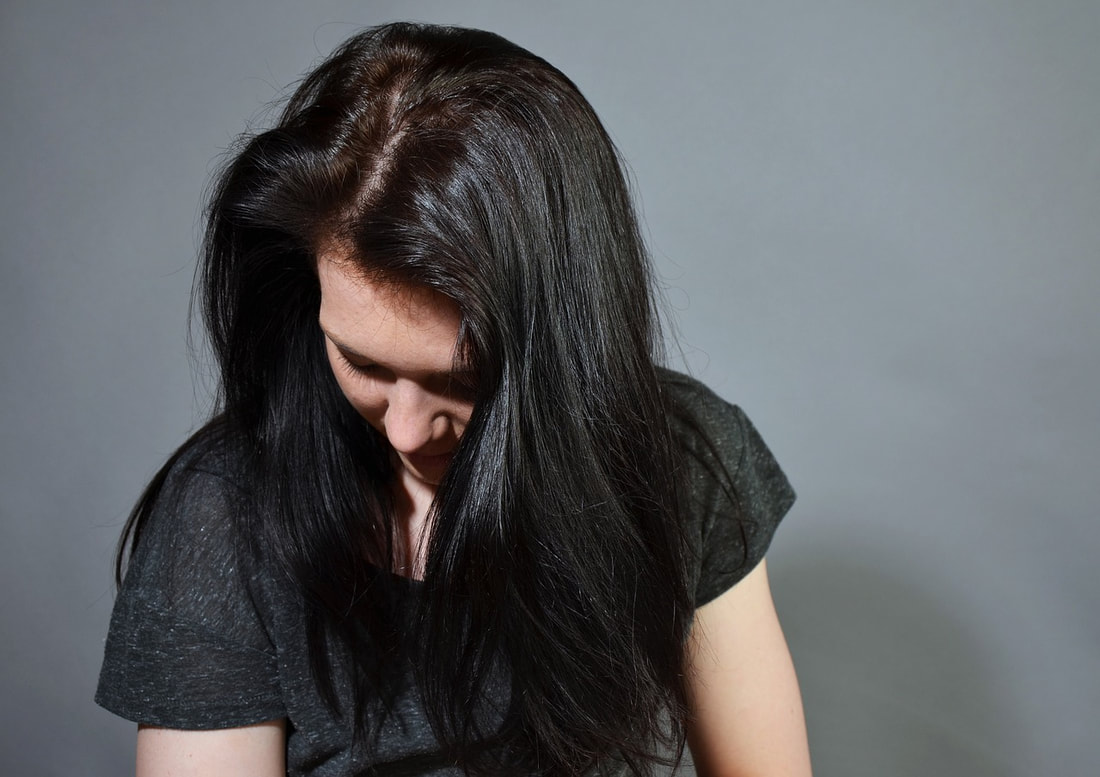|
By: Jennifer Rollin, MSW, LCSW-C Eating disorders are the second deadliest mental illness. Every 62 minutes, someone dies, as the direct result of an eating disorder. Cardiac or respiratory arrest is one of the most common causes of death for individuals with bulimia. Heart disorders are the most common cause of death for people with anorexia. About half of the deaths caused by anorexia are due to sudden cardiac deaths. Additionally, morality rates for OSFED are just as high as for individuals with anorexia or bulimia. Since binge eating disorder was only more recently added as a diagnosis to the diagnostic and statistical manual, there is less data regarding mortality rates, however it is just as serious as other eating disorders. Eating Disorders and Suicide Another prevalent cause of death for people with eating disorders is suicide. The following are a few factors, which help to explain this.
How to Cope with Suicidal Thoughts First off, if you are struggling with an eating disorder and suicidal thoughts, I want to send so much compassion to you. This can feel so incredibly painful and exhausting-it’s can almost be hard to put words to. The fact that you are reading this article, shows me that there is part of you (even if it’s a tiny part) that doesn’t want to die. Here are a few important steps to take: 1. Reach out! The worst thing that you could do would be to continue to hold this inside and tell no one. If you are not sure if you can keep yourself safe please go to your nearest ER, call 911, or contact the nearest suicide hotline via chat or phone. If you feel that you can commit to keeping yourself safe, but are having suicidal thoughts-reach out to your therapist, doctor, member of your treatment team, the suicide hotline, or another supportive person in your life. If you aren’t meeting with a therapist, consider finding someone who specializes in eating disorders/depression in your area. Seeking help when you are struggling is a sign of true strength, not weakness. 2. Feel your feelings and talk back to your thoughts. When you are struggling with an eating disorder and/or depression-your mind has been hijacked. It’s kind of like you are wearing a pair of dark sunglasses, which color your perception of the world around you. When people are struggling more intensely with eating disorder or depressive thoughts, their perception of reality may be very skewed by the eating disorder/depression. It’s as if they are viewing things through a pair of “eating disorder” or “depression” sunglasses. Through therapy we can slowly work to take the sunglasses off, so that they can start to view things in a healthier way. It’s so important to practice talking back to your unhelpful thoughts. I will often assign clients to dialogue between their “eating disorder self” and their “authentic self” (always trying to end on the authentic self). An Example Eating Disorder Self: It seems unfair that I have to keep living like this. I just don’t know if I can keep living like this. It’s so exhausting. Authentic Self: You’ve felt this way before and things have gotten better. These feelings are only temporary, but dying is a permanent solution. Suicide isn’t a solution-it would transfer your pain onto the people who you care about the most. Why don’t you give this recovery and improving your life thing a shot? Eating Disorder Self: But what if things don’t get better? I’m scared that I’ll be trapped in this cycle forever. I’d rather die than live with this for the rest of my life. Things are already falling apart. I’ve gained so much weight and I don’t think I can tolerate gaining any more. Authentic Self: Suicide or sinking back into your eating disorder, will only create more pain and suffering, either for the people that you love or for yourself. Neither of these things are the answer, and you shouldn’t have to struggle with all of this without support. Why don’t you reach out to the suicide hotline to talk to someone? I guarantee if you reach out for support, do something relaxing, and then get some sleep-things will feel a bit better in the morning. The only reason that you would not recover, is if you stopped trying. You’ve already come so far. Don’t give up on your recovery (or yourself) now. 3. Be kind to yourself. Beating yourself up for struggling with an eating disorder and having suicidal thoughts, will only make you feel even worse. It’s not your fault that you are struggling with this. No one would choose to have an eating disorder or suicidal thoughts, because both things are so painful and exhausting. I’ve seen people who once felt totally trapped by their eating disorder and suicidal thoughts, who are now in strong recovery or recovered-and who feel much more hopeful overall. Even for those whose depression persists after recovering from an eating disorder, there are still things that you can do to learn how to better cope with and change your relationship to your depressive thinking-so that it doesn’t have so much power over you. Recovery Is Possible No matter what your eating disorder might be telling you, recovery is possible. If you are struggling with suicidal thoughts please reach out for help and support by contacting the suicide hotline, going to the ER, or calling 911. You are so not alone in this, and help is available. The Eating Disorder Center is a premier outpatient eating disorder therapy center founded by Jennifer Rollin. We specialize in helping teens and adults struggling with anorexia, binge eating disorder, bulimia, OSFED, and body image issues. We provide eating disorder therapy in Rockville, MD, easily accessible to individuals in Potomac, North Potomac, Bethesda, Olney, Silver Spring, Germantown, and Washington D.C. We also provide eating disorder therapy in Arlington, Virginia and virtually throughout Virginia. Additionally, we offer eating disorder therapy virtually in New York (NYC), Florida, and California, serving those in cities including Palo Alto, San Francisco, Newport Beach, Los Angeles, Woodland Hills, San Jose, and Beverly Hills. We provide eating disorder recovery coaching via Zoom to people worldwide. Connect with us through our website at www.theeatingdisordercenter.com
*Disclaimer: The information is provided for educational and informational purposes only. It is not intended to be a substitute for your independent medical decision-making nor a recommendation or endorsement for any particular treatment plan, organization, provider, professional service, or product. By Jennifer Rollin, MSW, LCSW-C Why is it important for clients with eating disorders to see a specialist therapist vs. a generalist? Eating disorders are the second deadliest mental illness, so the consequences of not receiving specialized treatment can be dire. They are highly treatable, however in order to effectively treat clients with eating disorders, therapists must have specialized training. This training is not typically offered in graduate school and is something therapists have to seek out on their own. Additionally, we are all raised in diet culture and in a society that is steeped in systems of oppression. It's critical that therapists have done their own work around this in order to treat folks with eating disorders. Think of it this way, you wouldn't see a primary care physician for brain surgery. And someone could be an excellent primary care doctor with no knowledge of how to do brain surgery. A personal story When I was first struggling with an eating disorder, I was seeing a generalist therapist. He was a great therapist but had no knowledge of eating disorders. He seemed perplexed as to why I was crying in his office about a weekend away where i'd have no control over the food asking me "is this about something deeper?" He didn't seem to get that I was hysterical about the food and while of course this masked deeper issues-I was in the beginning stages of an eating disorders. When I switched to an eating disorder therapist, recovery coach and dietitian, it was like a breath of fresh air. I felt understood in a way that I hadn't before and they were trained in how to talk to me and how to effectively help me. Had I never sought specialized help, i'm not sure that I would have gotten better. My own journey is why I founded The Eating Disorder Center and am so passionate about providing specialized eating disorder therapy. Eating disorders are treatable and folks deserve specialized support and recovery. By Megan Samuels, MSW, LMSW, Outreach Coordinator When people reach out to us for help, a common question they have is about the difference between therapy and recovery coaching. Here’s the difference in a nutshell, although it can be more nuanced and on a case-by-case basis. If you aren’t sure what service would be best for you, you can always contact us through our contact form and a team member will be able to assist. What is the difference? Recovery coaching focuses on changing behaviors and building a life outside of your eating disorder. It encourages self-compassion, body positivity, and food freedom. Coaching utilizes a present-focused, goal-setting and skill-based approach to push through limiting beliefs and behaviors. We typically require coaching clients to be working with a therapist. However, coaching can be a stand-alone approach for someone with subclinical disordered eating or body image issues, or for someone further along in their recovery. We are able to offer coaching services to anyone over the age of 13 years old. Coaching is available worldwide via Zoom platform, whereas in therapy, the client must be physically in the state that the therapist is licensed in during the time of the therapy sessions. So, would coaching help me? Here are some scenarios where a coach may be helpful: 1. You are a family member of someone who is recovering from an eating disorder. You may have questions about the process or how to best support the person in recovery.
2. Let’s say a college student is in recovery from an eating disorder and working with a therapist and a dietitian. The student seems to be struggling more and more with the eating disorder thoughts and urges. The student would like additional support with their recovery journey so they can stay in school and avoid a higher level of care.
3. A person in their 40s with no history of an eating disorder may be struggling with their body image. They may be sick of dieting and wanting to make peace with their body. They may have anxiety around the way that their body looks.
4. You have a past history of an eating disorder. You may consider yourself in strong recovery, but some eating disorder thoughts and urges are creeping back in.
5. Let’s say you are a teenager who is recovering from an eating disorder and you are stepping down from a higher level of care facility and establishing an outpatient team. You found a therapist already, but you think that you could use some additional support throughout the week.
6. A 65 year old person is working with a therapist for anxiety and depression. Through talking with the therapist, this person has realized that they may have an unhealthy relationship with food or their body. Their therapist is not an eating disorder specialist and feels unable to address the food and body concerns.
The bottom line. These examples help to point out that there is no one size fits all answer to who can benefit from recovery coaching! Our team members are also trained to ask new clients questions to determine if recovery coaching would be a good fit. We also offer free 15 minute coaching consultations with one of our fabulous recovery coaches, so you can get a feel for their style as a coach and ask any questions that you might have. During this consultation, coaches will also assess to make sure that coaching is a clinically appropriate level of care. If therapy is needed, we will be happy to provide you with personalized recommendations based on your treatment goals. Our two recovery coaches are amazing and have backgrounds as a therapist and an RD. What People Are Saying About Coaching!
The Eating Disorder Center is a premier outpatient eating disorder therapy center founded by Jennifer Rollin. We specialize in helping teens and adults struggling with anorexia, binge eating disorder, bulimia, OSFED, and body image issues. We provide eating disorder therapy in Rockville, MD, easily accessible to individuals in Potomac, North Potomac, Bethesda, Olney, Silver Spring, Germantown, and Washington D.C. We also provide eating disorder therapy in Arlington, Virginia and virtually throughout Virginia, as well as in D.C. Additionally, we offer eating disorder therapy virtually in New York (NYC), Florida, and California, serving those in cities including Palo Alto, San Francisco, Newport Beach, Los Angeles, Woodland Hills, San Jose, and Beverly Hills. We provide eating disorder recovery coaching via Zoom to people worldwide. Connect with us through our website at www.theeatingdisordercenter.com *Disclaimer: The information is provided for educational and informational purposes only. It is not intended to be a substitute for your independent medical decision-making nor a recommendation or endorsement for any particular treatment plan, organization, provider, professional service, or product.
By Megan Samuels, MSW, LMSW, Outreach Coordinator Relapse can be a natural part of recovering from an eating disorder. If you are a friend or a loved one of someone who is struggling with an eating disorder relapse; these tips are for you. 1. Be there.
2. Ask them what they need.
3. Encourage them to be honest with their treatment team.
4. Remind them that they are not where they started.
Here are some questions to have your loved one or friend consider or journal on if they are struggling with relapse from an eating disorder:
We have immediate openings right now for eating disorder therapy in: Maryland and Washington D.C. And recovery coaching worldwide. Click this link to schedule a free 15 min consultation. The Eating Disorder Center is a premier outpatient eating disorder therapy center founded by Jennifer Rollin. We specialize in helping teens and adults struggling with anorexia, binge eating disorder, bulimia, OSFED, and body image issues. We provide eating disorder therapy in Rockville, MD, easily accessible to individuals in Potomac, North Potomac, Bethesda, Olney, Silver Spring, Germantown, and Washington D.C. We also provide eating disorder therapy in Arlington, Virginia and virtually throughout Virginia. Additionally, we offer eating disorder therapy virtually in New York (NYC), Florida, and California, serving those in cities including Palo Alto, San Francisco, Newport Beach, Los Angeles, Woodland Hills, San Jose, and Beverly Hills. We provide eating disorder recovery coaching via Zoom to people worldwide. Connect with us through our website at www.theeatingdisordercenter.com
|
The Eating Disorder CenterWe are a premier outpatient eating disorder therapy center in Rockville, Maryland. Archives
July 2024
Categories |




 RSS Feed
RSS Feed